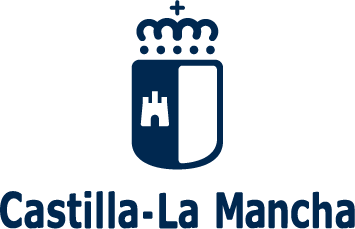The last meeting of the RedEra+ project, a European project coordinated by the Regional Ministry of Economy, Business and Employment and the Regional Ministry of Education, Culture and Sports, took place in Brussels on 7 September 2022. The aim was to disseminate the results of the project as widely as possible.
The event took place in the premises of the Spanish Embassy in Belgium, which kindly lent us the room where the event was held. The day began with a presentation by the Regional Minister of Education, Culture and Sports of Castilla-La Mancha, who highlighted the value of training to promote employment in the rural world and the budgetary effort that must be made in a region with a low population density such as Castilla-La Mancha to maintain the education system. The Regional Minister highlighted the importance of participating in European projects and underlined the role of education in the rural world, since education "is one more vehicle to attract and fix the population in the territory". In this regard, Rosa Ana Rodríguez stressed that Castilla-La Mancha has implemented pioneering measures in Europe aimed at tackling depopulation and listed some such as the implementation of vocational training connected to the socio-productive fabric in rural areas, the implementation of school transport and digitalisation, and the opening of rural schools in certain conditions, even with fewer than four pupils.
On her side, Patricia Franco, Minister of Economy, Business and Employment of the government of Castilla-La Mancha highlighted the importance of the leadership of Castilla-La Mancha in a project of European involvement in which entrepreneurship and vocational training are combined to fight against depopulation. She also highlighted the priority given to the demographic challenge in Castilla-La Mancha, stating: "We have been pioneers in Spain in the implementation of a law to curb depopulation and it is essential for us to share experiences with European partners that allow us to continue building a strong Europe, which has proved more necessary than ever at times like the present, marked by the health crisis and Russia's war on Ukraine".
María Gafo Gómez-Zamalloa, Deputy Head of Unit in DG Agriculture and Rural Development of the European Commission, then presented the main lines of work of her Unit and other areas of the European Commission to address the demographic and social challenges of rural areas in Europe. In his presentation, he said that the very composition of the current European Commission was a reflection of the importance given to demographic issues in rural areas, highlighting the cross-cutting nature of the subject and its link with European cohesion policy.
The seven project partners then presented one of their good practices. The seven selected good practices were:
- NOTUS (ES): The school for shepherds in Catalonia.
- Agenzia Piemonte lavoro (IT): Ostana: the case of the regeneration of an alpine village
- Autonomous Province of Trento (IT): Adopt a Cow
- Tirantes (NL): The pig family
- ABU Akademie (DE): Aktive Naturschule – Freie Naturschule Templin
- Junta de Comunidades de Castilla-La Mancha (ES): ACCEM: a project of socio-labour insertion in Sigüenza
- Osnovna Šola Lovrenc na Pohorju (SI): the case of entrepreneurship of the Saint Lorenz bakery, artisan bread and natural beverages.
The partners then presented some of the conclusions and recommendations derived from the project. Among others, the following were highlighted:
- The presence/combination of micro and macro strategies for rural areas as a key element.
- The empowerment of the community and local actors through networking
- The role of vocational training and, more broadly, of the education system in rural areas as an element of revitalisation.
- The role of small entrepreneurial initiatives and their dissemination as examples in the local community itself.
In conclusion, Nuria Chust, Vice-Minister of Employment, Social Dialogue and Labour Welfare of Castilla-La Mancha, indicated that despite the difficulties posed by the pandemic, all the project objectives had been met and were reflected on the project website: https://rederaplus.castillalamancha.en/. She stressed the cross-cutting nature of the demographic challenge, which in his opinion should find a relevant place on the agendas of regional and national governments and within the EU. In addition, she recalled some of the elements of revitalisation that have proved to be fundamental, such as the presence of a specialisation strategy for the territory, the alliance of civil society and the different administrations, the role of vocational training both promoted by public authorities and private initiative. The session concluded with thanks to all the parties involved in the project and to those who made the organisation of this event possible.









